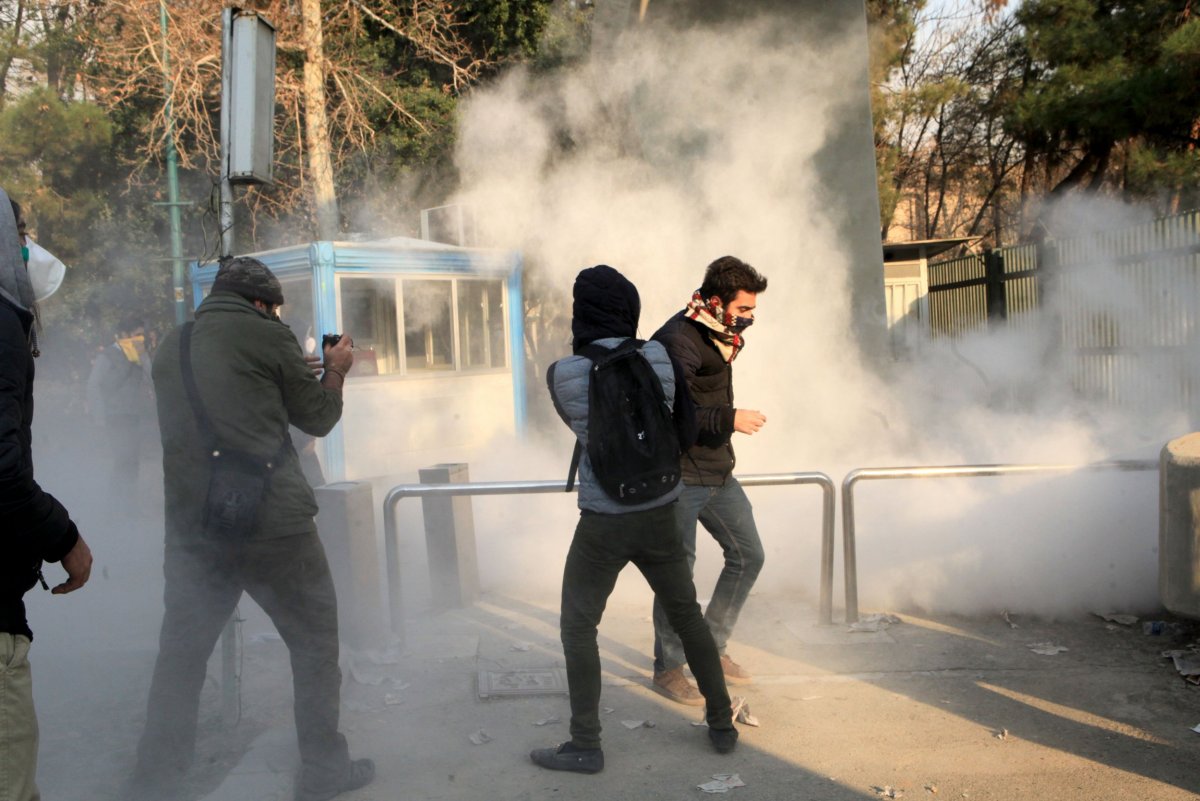This article first appeared on the Council on Foreign Relations site.
In the last few days there have been anti-government protests all over Iran.
The BBC reports this as of Friday night, in a story entitled "Iranian cities hit by anti-government protests."
Anti-government demonstrations that began in Iran on Thursday have now spread to several major cities.
Large numbers reportedly turned out in Rasht, in the north, and Kermanshah, in the west, with smaller protests in Isfahan, Hamadan and elsewhere.
The protests began against rising prices but have spiralled into a general outcry against clerical rule and government policies….
What began as a protest against economic conditions and corruption has turned political….
Slogans have been chanted against not just Mr Rouhani but Supreme Leader Ayatollah Ali Khamenei, and clerical rule in general.
Demonstrators were reportedly heard yelling slogans like "The people are begging, the clerics act like God". Protests have even been held in Qom, a holy city home to powerful clerics.
There is also anger at Iran's interventions abroad. In Mashhad, some chanted "not Gaza, not Lebanon, my life for Iran", a reference to what protesters say is the administration's focus on foreign rather than domestic issues.
Other demonstrators chanted "leave Syria, think about us" in videos posted online.
Videos posted on social media appear to show clashes between security forces and some demonstrators in Kermanshah.
Now compare today's New York Times coverage. It is entitled "Scattered Protests Erupt in Iran Over Economic Woes." More remarkably, consider the very first line:
Protests over the Iranian government's handling of the economy spread to several cities on Friday, including Tehran, in what appeared to be a sign of unrest.
Ya think? " Appeared" to be a sign of unrest?
What else was it, a sign of support for the ayatollahs?
And note the Times title again, telling you these protests are all about the economy—a conclusion contradicted by the words being shouted by the protesters, as the BBC tells us.

In fact, buried down in the Times story we do find that in Kermanshah "protesters shouted anti-government slogans like 'Death or freedom,' 'Care for us and leave Palestine' and 'Political prisoners must be freed'…." Does that sound like a "protest over economic woes?"
The Times story is written by its bureau chief in Tehran, Thomas Erdbrink, one of the very few Western reporters (he is Dutch) accredited to report for U.S. media.
Must he pull punches for fear of being expelled from Iran? After all, this is a regime that has invaded embassies (most recently, for example, the British Embassy in 2011) and in 2009 the entire BBC bureau there was shut down and the BBC's correspondent expelled.
In 2014, Washington Post reporter Jason Rezaian was arrested and then imprisoned for 18 months. He and his wife are now suing the government of Iran for their maltreatment and torture while in captivity.
So perhaps it is wise for reporters in Tehran to watch what they say. But the Times's report and headline that these are merely economic protests are misleading. Both should be corrected.
Meanwhile the U.S. Department of State issued a very strong statement on these protests—which rightly regards them as political:
We are following reports of multiple peaceful protests by Iranian citizens in cities across the country. Iran's leaders have turned a wealthy country with a rich history and culture into an economically depleted rogue state whose chief exports are violence, bloodshed, and chaos. As President Trump has said, the longest-suffering victims of Iran's leaders are Iran's own people.
The United States strongly condemns the arrest of peaceful protesters. We urge all nations to publicly support the Iranian people and their demands for basic rights and an end to corruption.
On June 14, 2017, Secretary Tillerson testified to Congress that he supports "those elements inside of Iran that would lead to a peaceful transition of government. Those elements are there, certainly as we know." The Secretary today repeats his deep support for the Iranian people.
The Iranian people rose up against their oppressors in June 2009. Now we are again seeing that this regime rules by brute force, is widely despised, and would be dismissed by the people if ever they got a chance to vote freely.
Elliott Abrams is senior fellow for Middle Eastern Studies at the Council on Foreign Relations.
Uncommon Knowledge
Newsweek is committed to challenging conventional wisdom and finding connections in the search for common ground.
Newsweek is committed to challenging conventional wisdom and finding connections in the search for common ground.
About the writer
To read how Newsweek uses AI as a newsroom tool, Click here.








